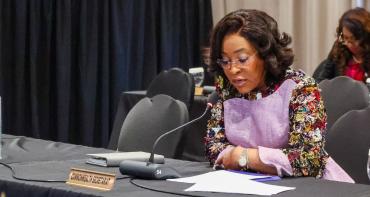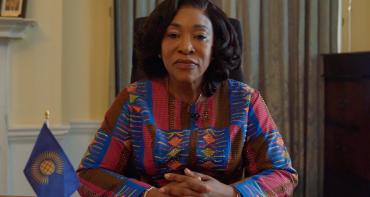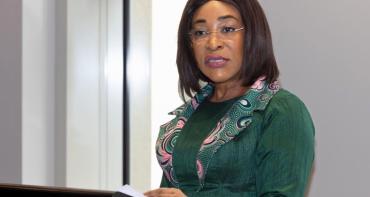Solidarity and greater collaboration between countries and multilateral organisations when tackling major health challenges, such as the COVID-19 pandemic, are key to addressing the widening health inequalities which continue to be observed across the world, the Commonwealth Secretary-General has said at a gathering of top experts and policymakers from the global health community.
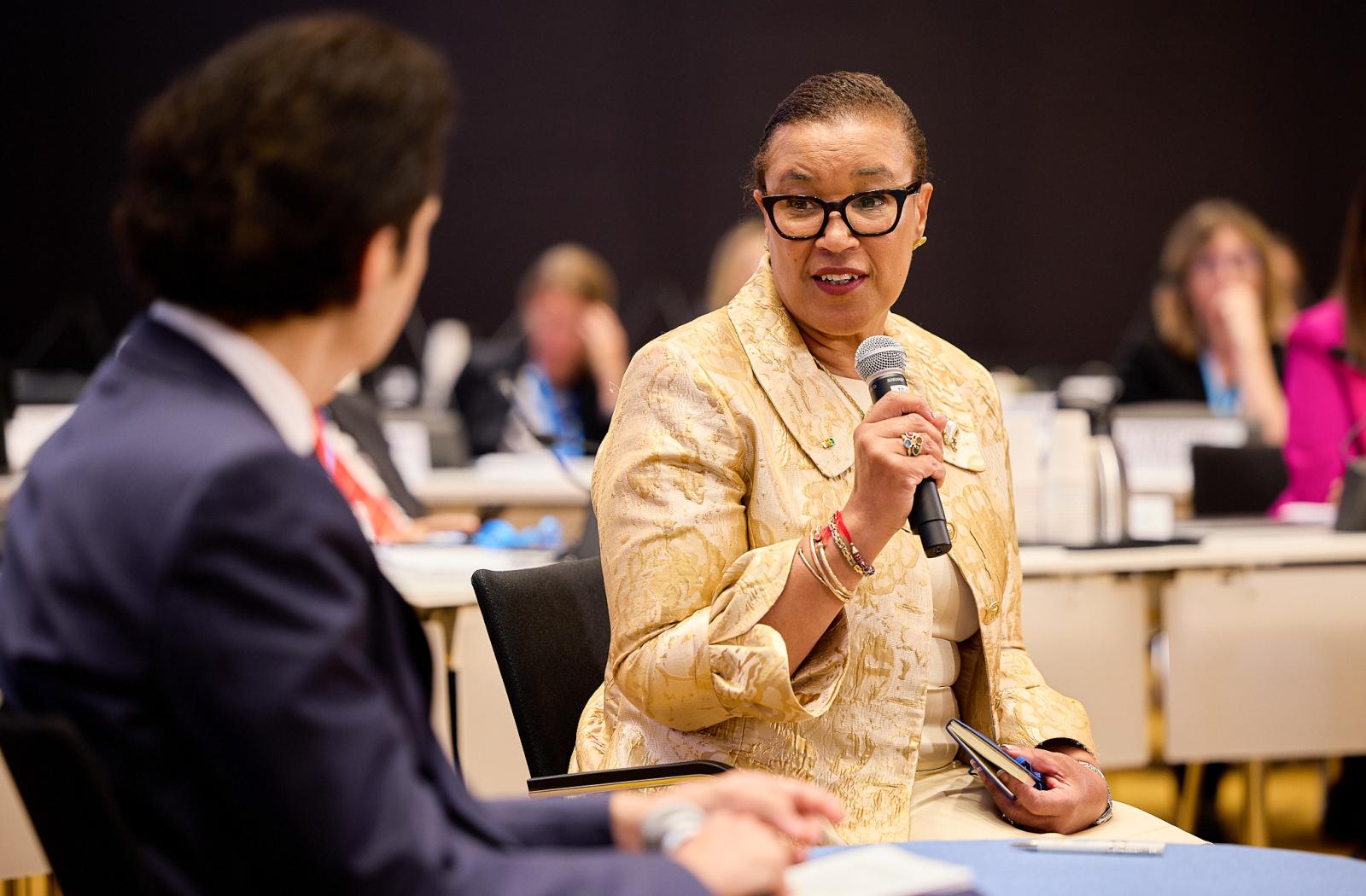
The Rt Hon Patricia Scotland QC spoke at the annual Health20 Summit, which was held at the World Health Organization (WHO) headquarters in Geneva, and shared her reflections and experience of working with the Commonwealth’s 56 member countries during the COVID-19 pandemic.
“When COVID came, it was a tremendous shock to all of us because having identified inherent inequalities and difficulties, they were now laid bare,” the Secretary-General said. Referring to these stark inequalities, especially in access to COVID-19 vaccines, in the Commonwealth where there are 25 small island states, 14 least-developed states, some of the richest countries in the world but also some of the poorest countries, the Secretary-General added:
“The trauma of COVID has been quite extraordinary. Some of our countries have had 75 per cent coverage of vaccinations, but other countries have had 5 per cent, and that unfairness has been truly shocking.
“I said in 2019 and 2020 that we were all in the same storm, but we were definitely not in the same boat. And so, one of the big issues for us was how that equity should be delivered. And through the Commonwealth Health Ministers Meeting which took place in the first few months of the COVID-19 pandemic in 2020, we brought together all our health ministers to share what worked and what didn't work.”
‘This is not the last pandemic’
The first day of the H20 Summit focused on sustainable financing for health and the new Financial Intermediary Fund (FIF) for Pandemic Preparedness and Response (PPR), and provided opportunities to discuss how health systems can be rebuilt for greater resiliency and preparedness against health shocks. During these discussions, the Secretary-General called for a whole-of-government approach to address the interlinking nature of issues surrounding health, finance, and innovation, when dealing with future pandemics and crises.
“The most important thing is to help finance ministers to see this as an investment.
“And the other issue is that this is not simply a health ministers’ problem.
“In order to make a difference in health, we have to make huge investments in education, technological development, and infrastructure.”
“This is not the last pandemic, and the pandemics are going to be coming just like the climate crisis where hurricanes that used to come once in a lifetime [are now] coming every other year. ”
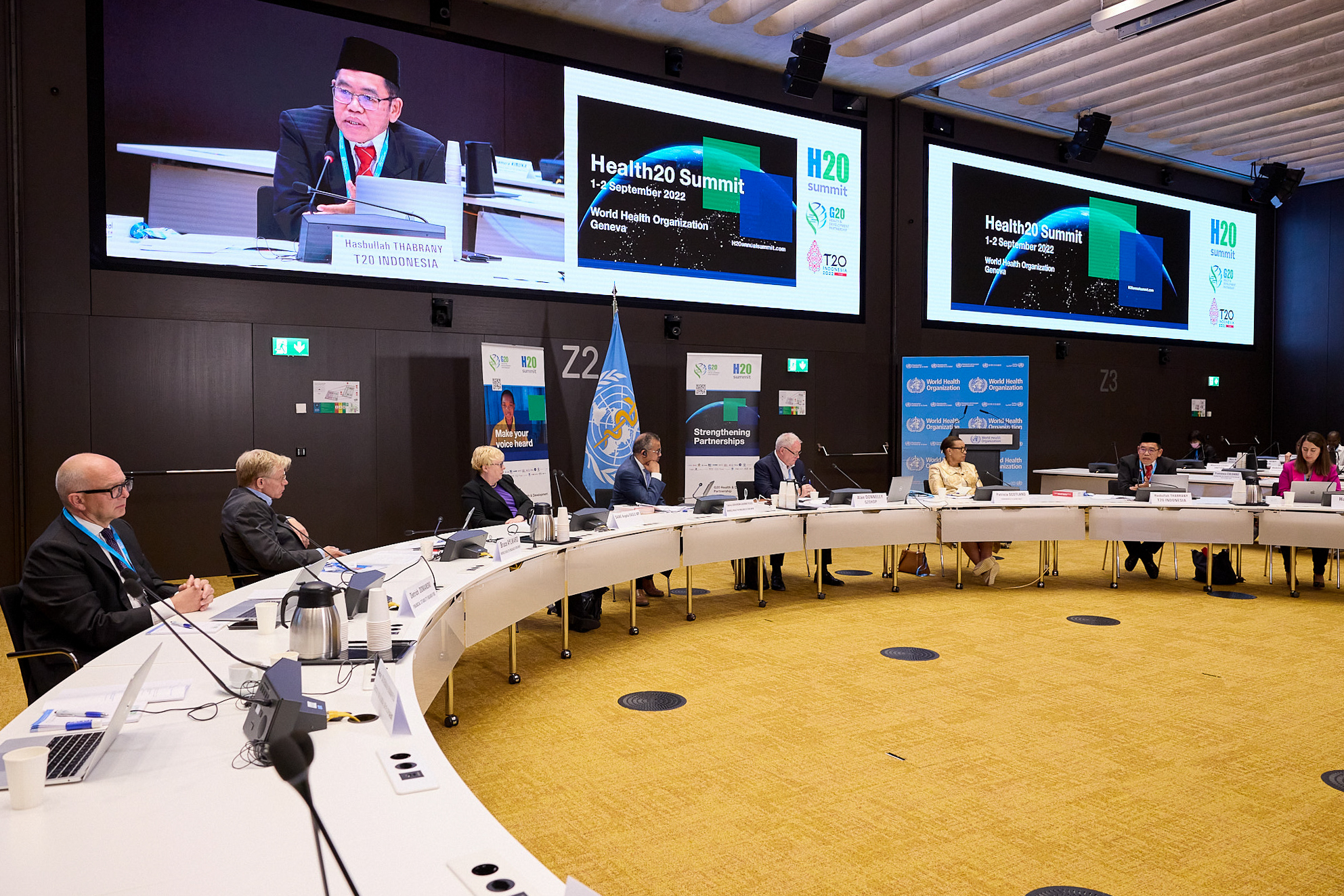
The Secretary-General also reaffirmed the Secretariat’s resolve to advance Universal Health Coverage across the Commonwealth – something which was placed high on the agenda at this year’s Commonwealth Heads of Government Meeting in Kigali. Innovation, digital health, and cooperation are going to play a huge part in the recovery effort, the Secretary-General added.
Looking ahead, the Secretary-General highlighted the need for solidarity and unity, and greater collaboration between countries given the frequent nature of epidemics.
“One of the most important things that we saw was the need for solidarity and unity, certainly amongst the Commonwealth’s 56 countries,” the Secretary-General said. “I think one of the things I would have liked to have seen is greater collaboration…We are going to have to find a way of doing things together…We can either swim together or we can drown separately. And I suggest we swim together,” she concluded.
Similarly, the WHO Director-General, Dr Tedros Adhanom Ghebreyesus, in his keynote address, highlighted the need to support countries to strengthen global health security and achieve the Sustainable Development Goals. He said:
“As we have all experienced, the COVID-19 pandemic has been far more than a health crisis. It has deepened economic, social and health inequalities in all countries. Already-vulnerable groups suffered the most.
“We now face many concurrent challenges - conflict and humanitarian crises, deepening poverty, rising food and energy prices, drought, famine, climate change, and political division. The pandemic has made clear that health is central to development.
“In the face of these many challenges, we must support countries to move forward on the path to universal health coverage and other health-related targets in the Sustainable Development Goals.”
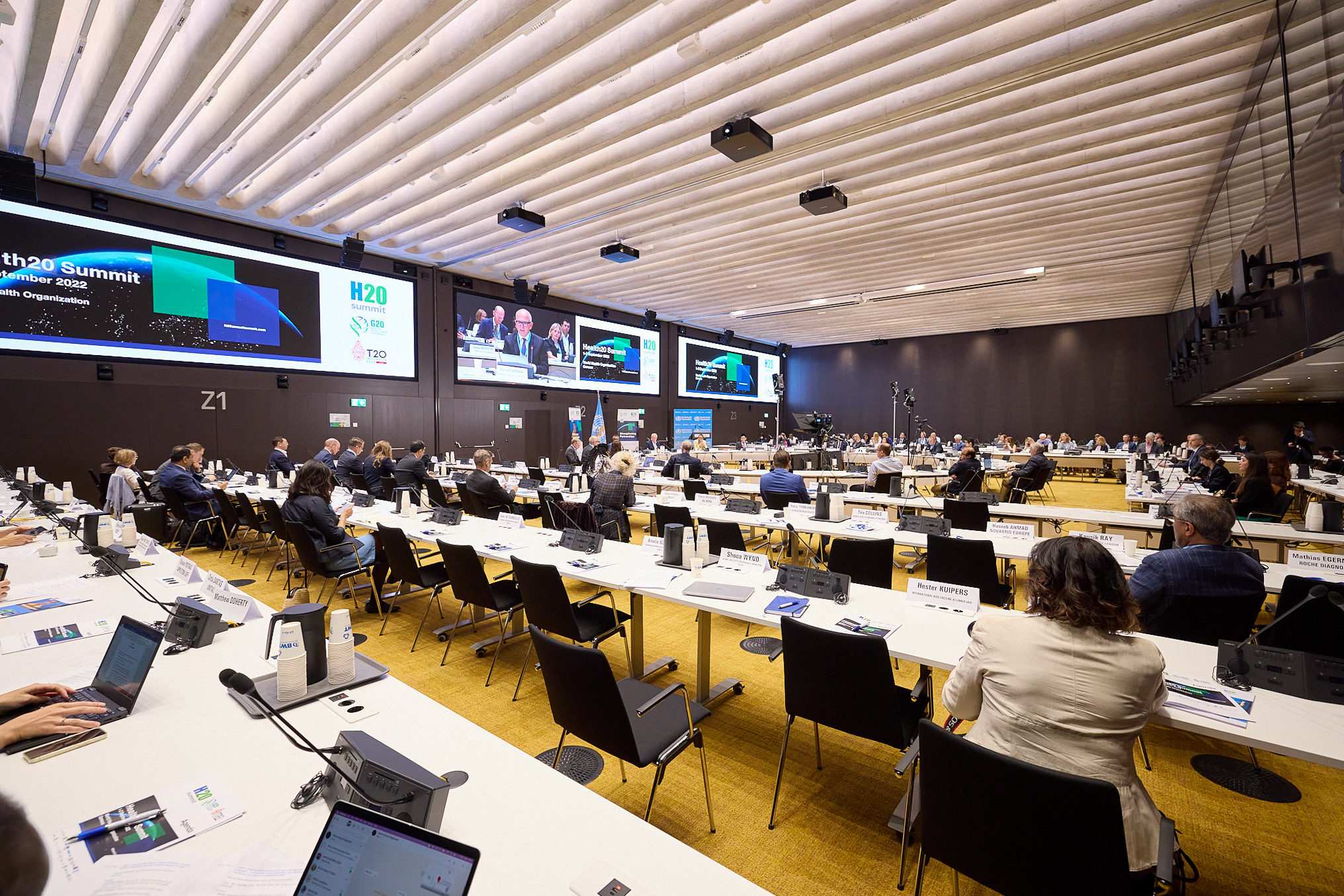
This year’s annual H20 Summit, which runs until 2 September, marks its first in-person gathering since the COVID-19 pandemic. Launched in 2018, the Summit is an independent annual platform in support of the G20 Presidency agendas. It brings together G20 policymakers, international organisations, the global health community, the private sector, economists, civil society, and academia to discuss concrete recommendations to the G20 ahead of the remaining ministerial meetings for 2022.
Day two of the Summit focused on other pressing global health issues, looking at health in the digital age, antimicrobial resistance, and the growing burden of non-communicable diseases such as cardiovascular disease.
At the conclusion of the Summit, the recommendations will be compiled into a “Call to Action”, which is then reflected in the G20 Leaders, health ministers and finance ministers’ Declarations.
For more information about the Summit, visit https://h20annualsummit.com/.
Images by Glenn MICHEL | H20 Summit
Media contact
- Angela Kolongo Communications Officer, Communications Division, Commonwealth Secretariat
- T: +44 7587 881503 | E-mail

